The Witcher 3's best quests
Frying pans, spectral whales, and flubbing our lines round out our favorites.
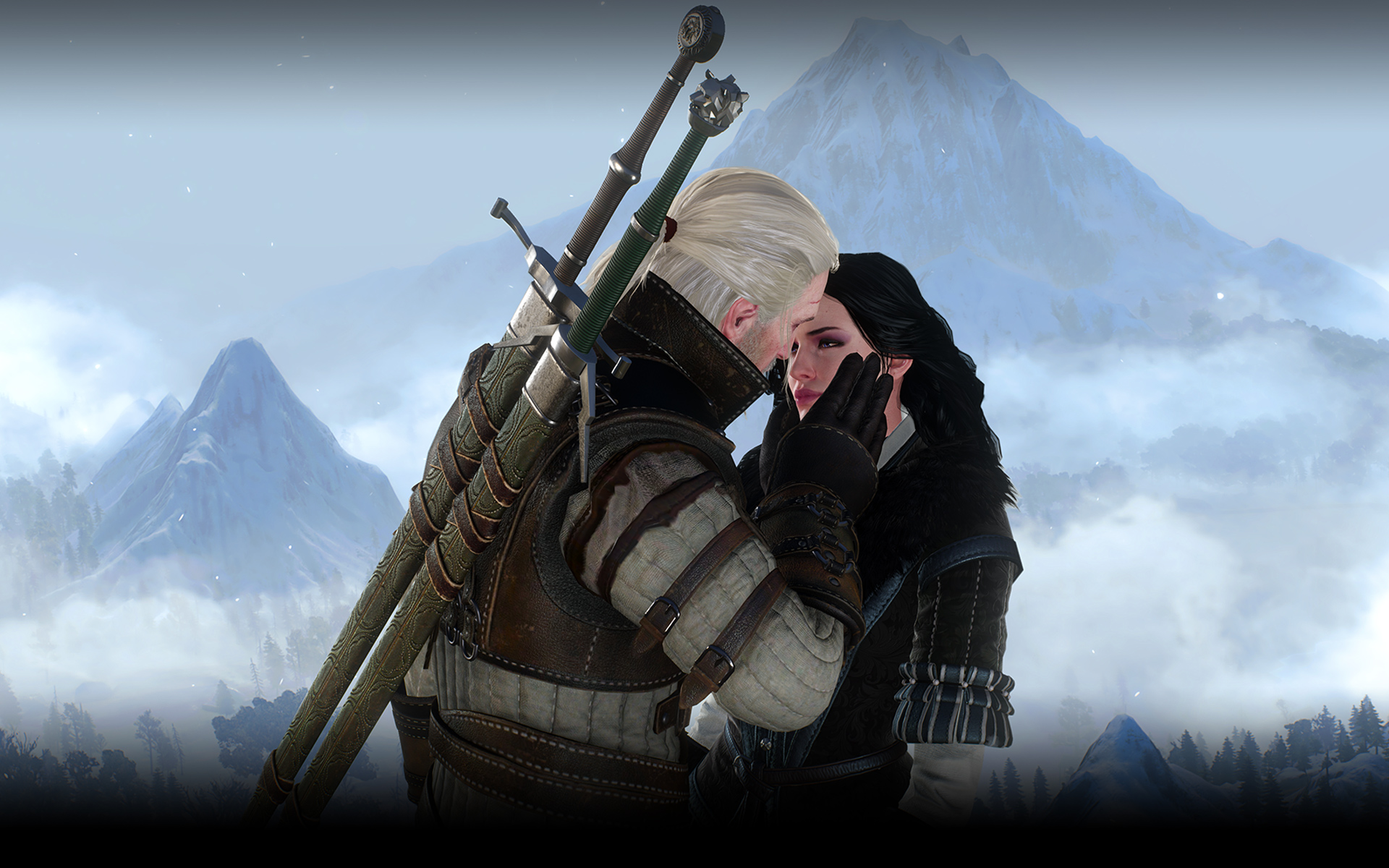
I couldn’t stop thinking about Moby Dick while playing The Witcher 3. The game isn’t a massive, meandering novel, but they do have something vital in common. Moby Dick is 25 percent traditional plot and 75 percent internal monologues on whale anatomy as a springboard for philosophy. It’s weirdly specific and tangential, and likewise, The Witcher 3 is 10 percent Geralt’s story and 90 percent the rest of the world’s. In other words, the game is at its best when it stops being about saving the world and is instead about anything else, like finding a frying pan for a distraught old woman in a decrepit riverside village. It’s these particularities in a massive world that give it a pulse.
And while the main questline is good fantasy storytelling, it wouldn’t carry weight or consequence without being grounded in mundanity first. Don’t get me wrong; I enjoy sliding through The Hero’s Journey time and time again, it’s just always been a conduit—especially in games—to live somewhere else and care about something new.
There’s plenty of room for the particular in The Witcher 3, and from it springs the universal, or, a damn memorable, emotive game. Which is all to say there aren’t many mainline quests in our best of list—don’t worry, they’re all pretty great. It’s a compliment and not a criticism.
Oh, and once more. Here be spoilers.
A Greedy God

James Davenport, Staff Writer: The world of The Witcher isn’t a happy one most of the time. Round a bend on Roach and boom: tree decorated with corpses. Which is why I was happy to stumble onto two buffoons worshipping a false god. They implore Geralt for assistance in appeasing their angry deity, who, after a stupidly simple investigation, turns out to be a sylvan hiding underground and talking through a pipe.
The dude is hairy and imposing, but he’s just a relatively harmless ancient creature looking for fatty foods and booze (#relatable). Geralt hears him out and is given the option to kill the guy or figure out a compromise. I felt for the fat goat man, and allowed him to stay as long as he made sure his loyal and lightly cursed worshippers weren’t taking their offerings from hungry mouths. So, even after I passed my umpteenth witch burning on the way to the blacksmith, I carried the memory of the greasy goat man with me—a small, bright anecdote in an otherwise dour world.
Carnal Sins
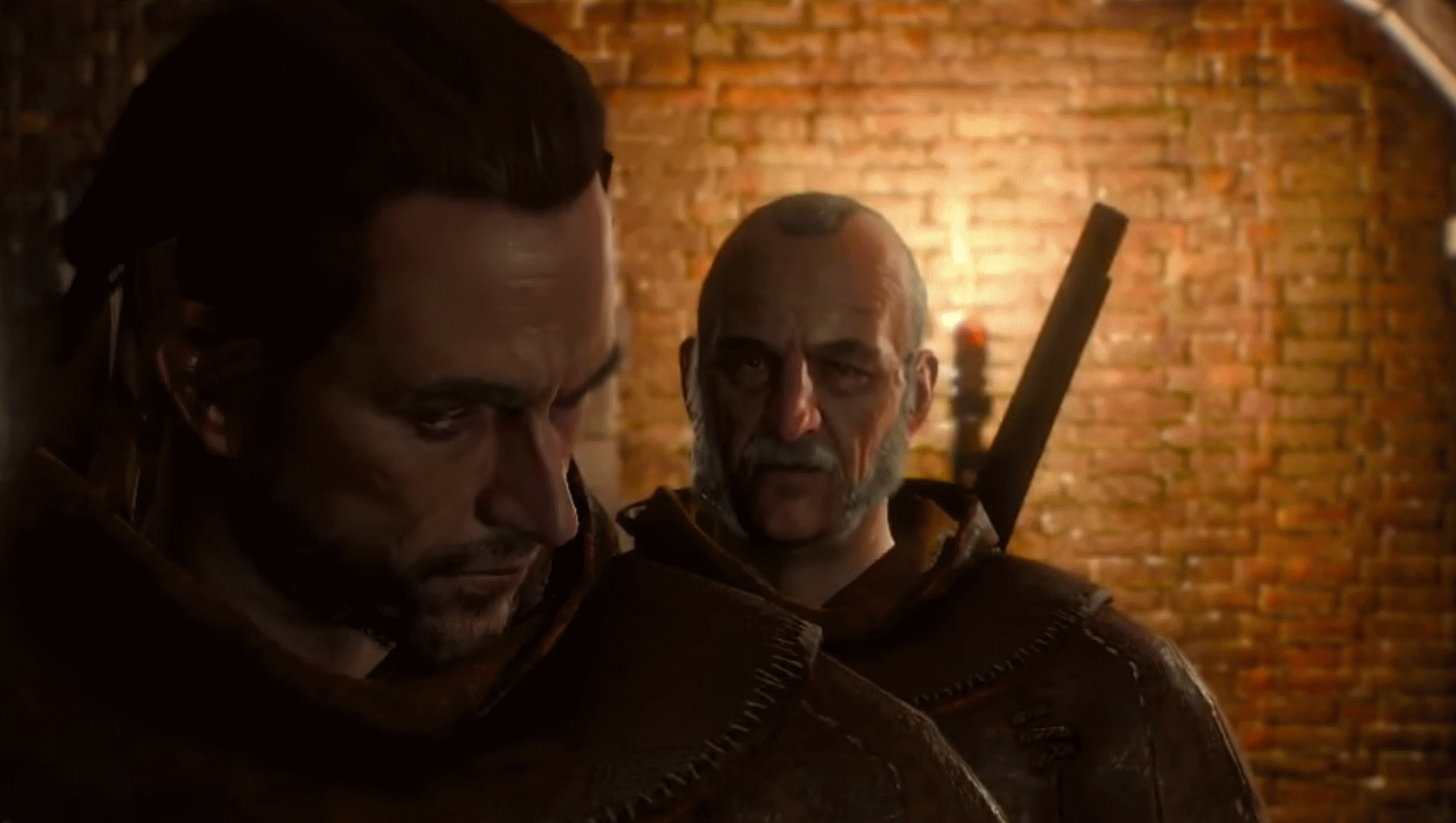
Wes Fenlon, Senior Editor: This quest felt like a throwback to a big chunk of Witcher 1, where Geralt is attempting to solve a murder. It’s a great mix of the fantasy/occult elements of the Witcher and twisted true crime, as you hunt down a serial killer in the streets of Novigrad.
Keep up to date with the most important stories and the best deals, as picked by the PC Gamer team.
Your connection to Priscilla makes it feel personal. Geralt’s angry. I was angry. And you could easily fall for the misdirection the game throws your way and kill an innocent man—who isn’t really innocent at all, but isn’t your killer. Play it smart, and you end up with a chilling showdown with a centuries-old vampire who hates humans. It really feels like you’re confronting this killer who’s been in this world for years and years.
And maybe he was even a formidable opponent if you weren’t overleveled, cause whoops I kicked his ass real fast.
Return to Crookback Bog
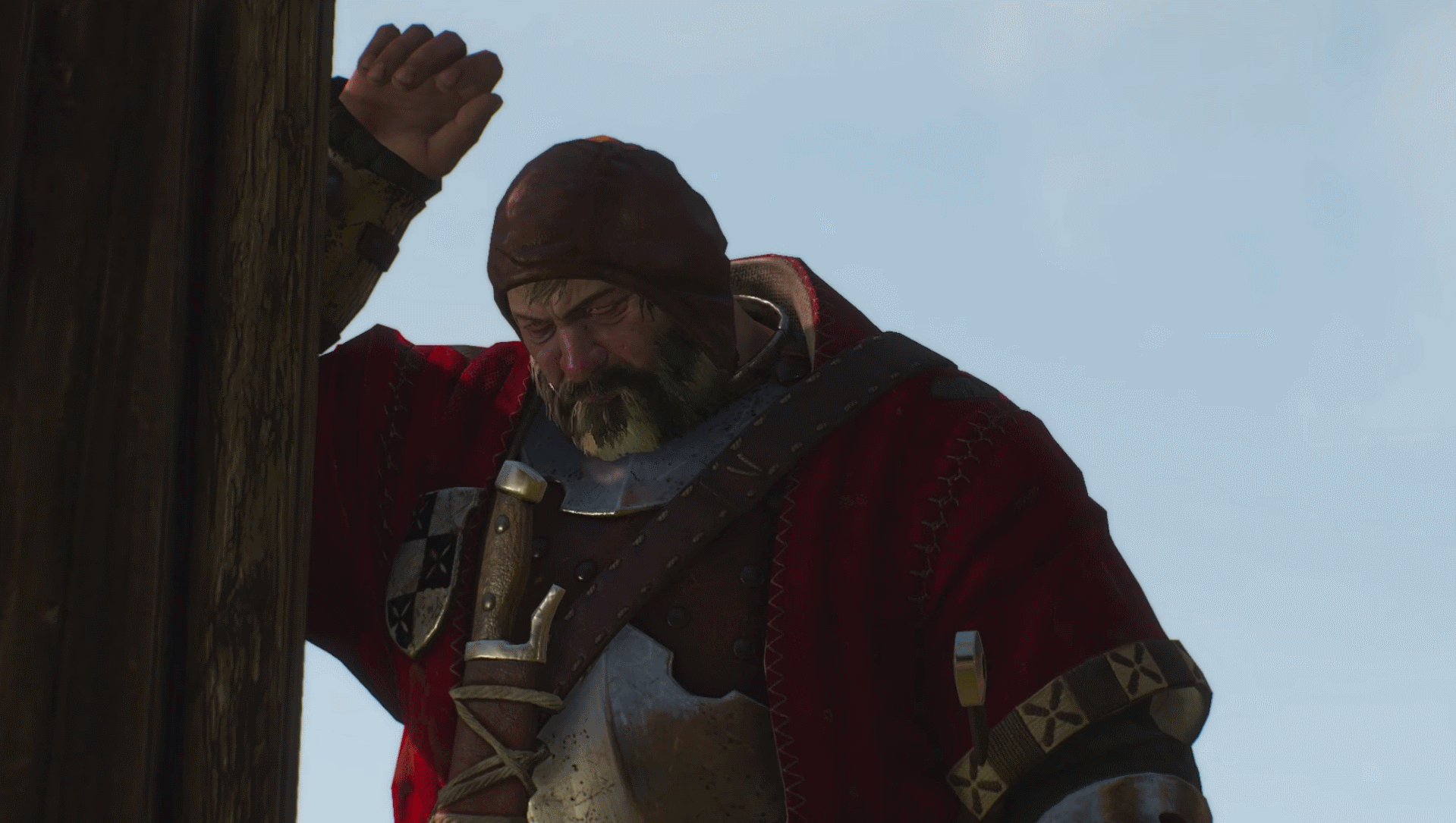
James: The first 10 or so hours of The Witcher 3 were my favorite, and hardly because of any main character. Geralt’s search for Ciri leads him to Crow’s Perch where he meets the infamous Bloody Baron. What I figured would just be a two to three hour hub for early quests bloomed into a massive domestic drama that washed away the majority of my concern for Geralt’s priorities—I wanted to help a family in ruins. It’s this focus on the particular, on something outside the typical spread of fantasy storytelling, that I found so refreshing. The Witcher has its fair share of ugly bad guys and mysticism and prophecy, but in Return to Crookback Bog, I was simply given the culmination of a small family’s story. Granted, it’s told using familiar fantasy props (how about those Crones?), but in such a fantastic world, it’s the attention to normalcy that most willfully suspends my disbelief elsewhere.
The ending can go two ways. Earlier, I stabbed a demon living under a massive tree until it was dead, which meant Anna, the Baron’s wife, was still quite shaken up over the loss of her orphans (damn you, Crones!). So, after an attempt to reconnect with his witch-hunter daughter, the Baron decides to take Anna to a healer in the Blue Mountains. It’s a sad ending, leaving plenty unresolved, but remains true to genuine domestic conflict in its myriad complexities; change is hard and often comes too late.
Ending two, if you don’t kill the gross tree demon, means you find Anna has been transformed into a psychedelic, saturated water hag. After defeating some smelly monsters, Geralt seeks Johnny, his BFF godling, for help. J-man points Geralt and company to some dolls in the crones’ basement. Finding and removing the doll most representative of Anna will lift the curse, but upon doing so, the heroic party finds out the curse was stronger than they thought. Anna returns to her human form, but she’s severely weakened and dies. There’s a lot of loud, sad exclamations from here on out, and Geralt eventually leaves. On his way out, Geralt sees the Baron hanging from a tree.
Phew. Uh. Glad I didn’t get that one. I think. I’m a fan of severe consequence in my storytelling, and for a game to nearly kill off an entire family they’d been orbiting for hours and hours—yeesh. I hope some folks cried. The arc earned it.
The Cave of Dreams
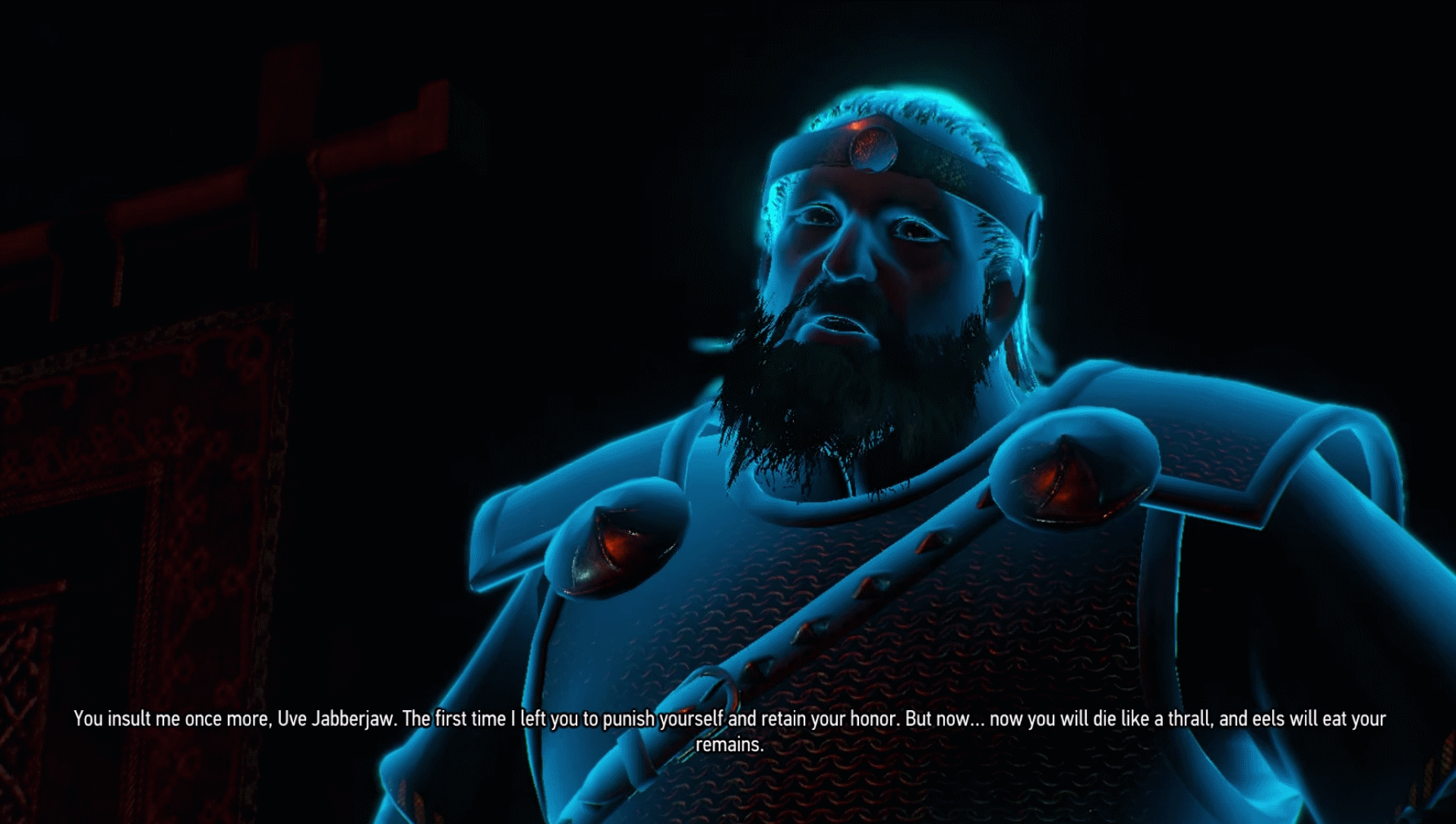
James: This quest is the closest approximation of taking hallucinogens and wandering a cave in order to win your father’s favor I’ve experienced in a ga—Um, I mean. It’s groovy, man.
The gist is this: You need to accompany Blueboy Lugos on a rite of passage. You take drugs and wander a cave. There’s a flying spectral whale. Neato.
But really, in 20 minutes, The Cave of Dreams gives as much history to each of its characters as some of the recurring characters in the main questline. And each of these characterizations feed into the cultural history of Skellige and its inhabitants. I was pleased to see each big, tough soldier encounter their fears, often an endearing triviality, in the form of a hallucination; each was relatable and affable in some way. To cap it off, Geralt’s vision of The Wild Hunt was a nice way to characterize and reinforce the impending importance of the main quest.
Contract: Devil by the Well
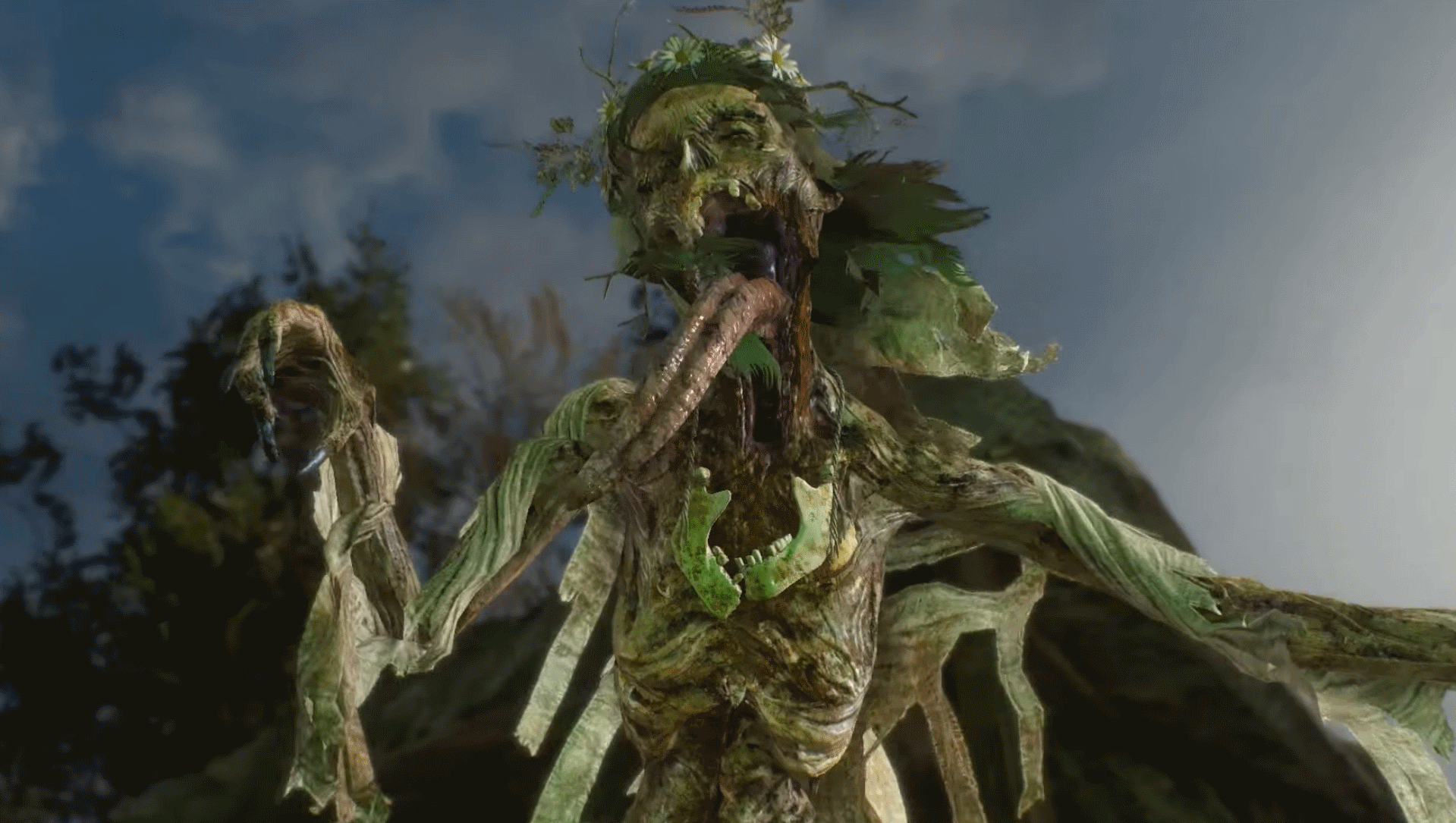
James: This early quest pits Geralt against a noonwraith in the game’s first sustained monster quest. While the quest doesn’t particularly stand out in terms of how it plays out, it’s the first of its kind in The Witcher 3, establishing some key components of the gameplay, narrative, and world. When I started the game, I figured the enemies would just execute a series of attack sequences, and difficulty would be determined solely by how I react to observable patterns. While this is true to an extent, the real fun in The Witcher’s combat comes from research and preparation.
Close examination of the noonwraith’s haunt leads Geralt to discover its particular weaknesses, noted in the bestiary. All the while, the research feeds into the narrative of how the noonwraith came to be, communicated by found objects and Geralt’s observations. By the time I prepped my potions and signs, I’d built up a real sense of empathy for the noonwraith, turning an otherwise routine battle into a weighty, consequential anecdote.
A Towerful of Mice
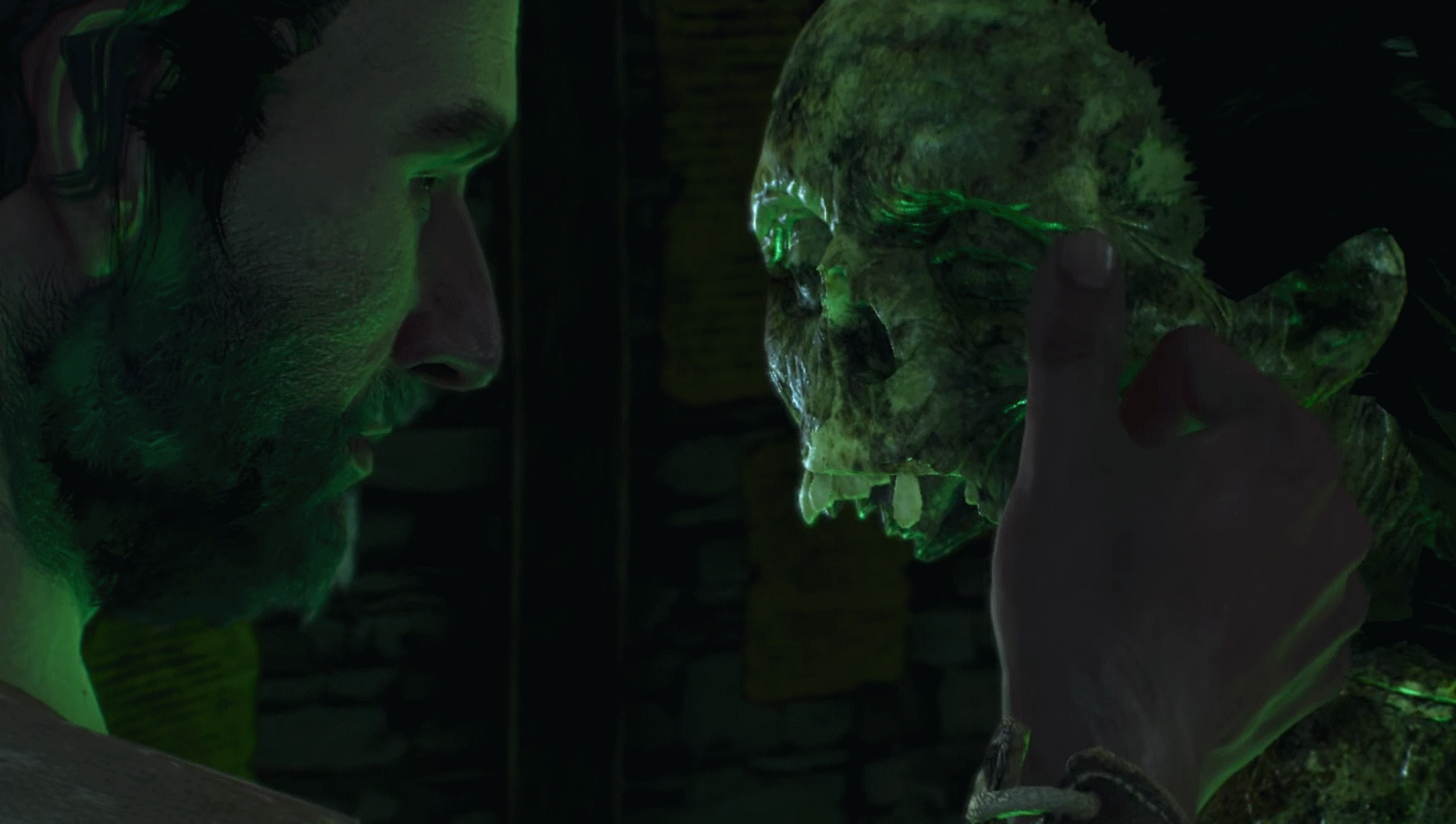
Wes: Like many Witcher quests, this one starts with one goal and takes you through an unexpected slice of story. Using Witcher skills, you encounter a wraith who seems sympathetic, but can detect the subtext that all is not as it seems. You can fight, follow its will, or tell its former lover about the wraith, which seems like it would be the happy ending—except they both die instead. Doing what feels like the right thing in The Witcher 3 can always leave you feeling uncertain, because unlike in most fiction, noble intentions don't always lead to happy endings.
A Frying Pan, Spick and Span
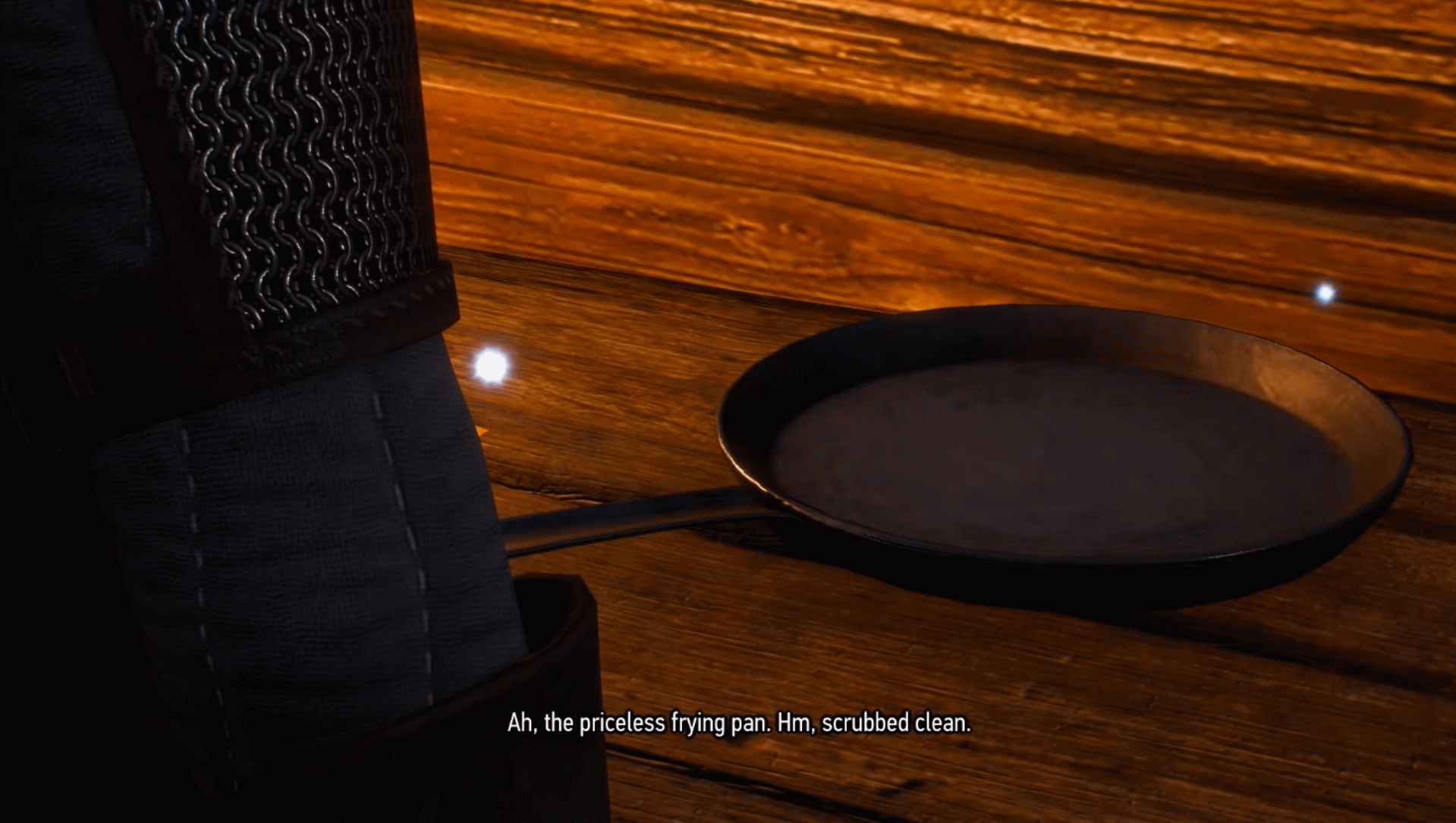
James: I love this quest. Juxtapose the tone of The Witcher 3’s marketing crusade—or any fantasy game for that matter—with this quest, in which you’re tasked with retrieving a character’s frying pan from their burglarized home. She delivers an impassioned monologue on the events leading to her pan’s theft, and Geralt—renowned witcher, respected hero, tasked with braving the threat of The Wild Hunt and finding Ciri—is out to find a frying pan.
Taking a break from stabbing ghosts and bird-lizards to help out an average person with a menial problem was actually somewhat touching. Geralt’s motive to help out wasn’t visible on the surface, but somehow welled up in quiet bursts of empathy during quests like this. Players can often alter Geralt’s tone in conversation, but he’s a definite character. Whether he finds the pan, grunting and cursing, or with a cheeky smile, the motive remains the same. Geralt’s subdued reverence for average folk is a reflection of the games focus on world-building, and it’s this kind of respect to tiny details that can make a grown man feel inexplicably affectionate towards a frying pan.
Contract: In Wolf's Clothing
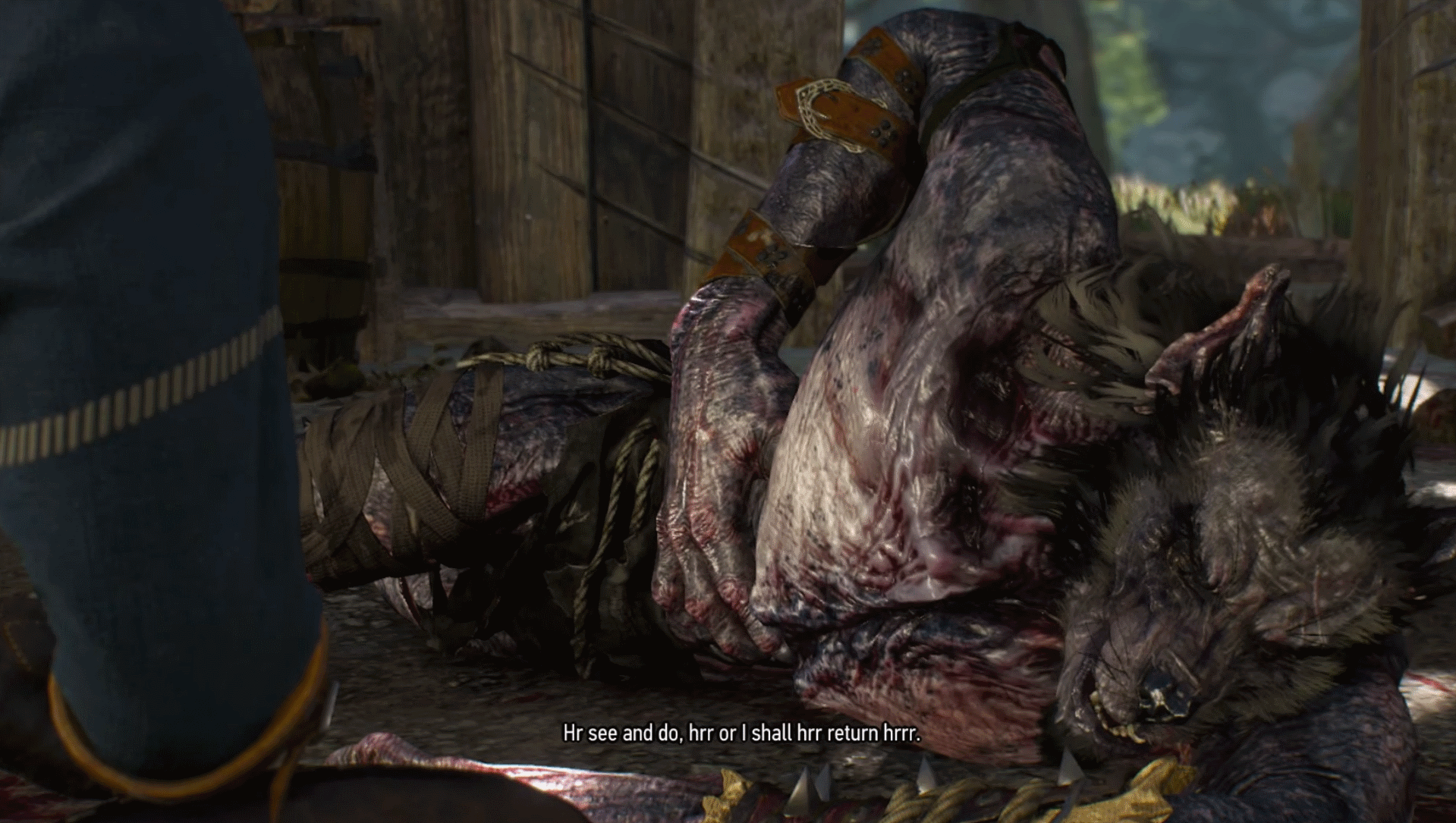
James: I fed a cursed wolfman his own arm. Oops! I felt really bad about the whole thing. The guy didn’t deserve it, cursed to roam a garden, unable to die, regenerating limbs—he felt bad too! That’s the kicker. While I mocked him (for being a wolfman) he recounted a story of soldiers and curses and I suppose something about how he can’t eat his own flesh without extreme pain? First off, ew. C’mon, buddy. Secondly, throw some steak rub on it first, dummy!
Doesn’t matter. I should have paid more attention, because I think there’s a way you can save the guy. Chime in if you know it. But I just fed him, ah, uh, some of himself? Like, a bit of leftover arm from previous gnaw and regeneration. I think I’m a bad man. He ate it and died. I’m a bad man.
The Play's The Thing
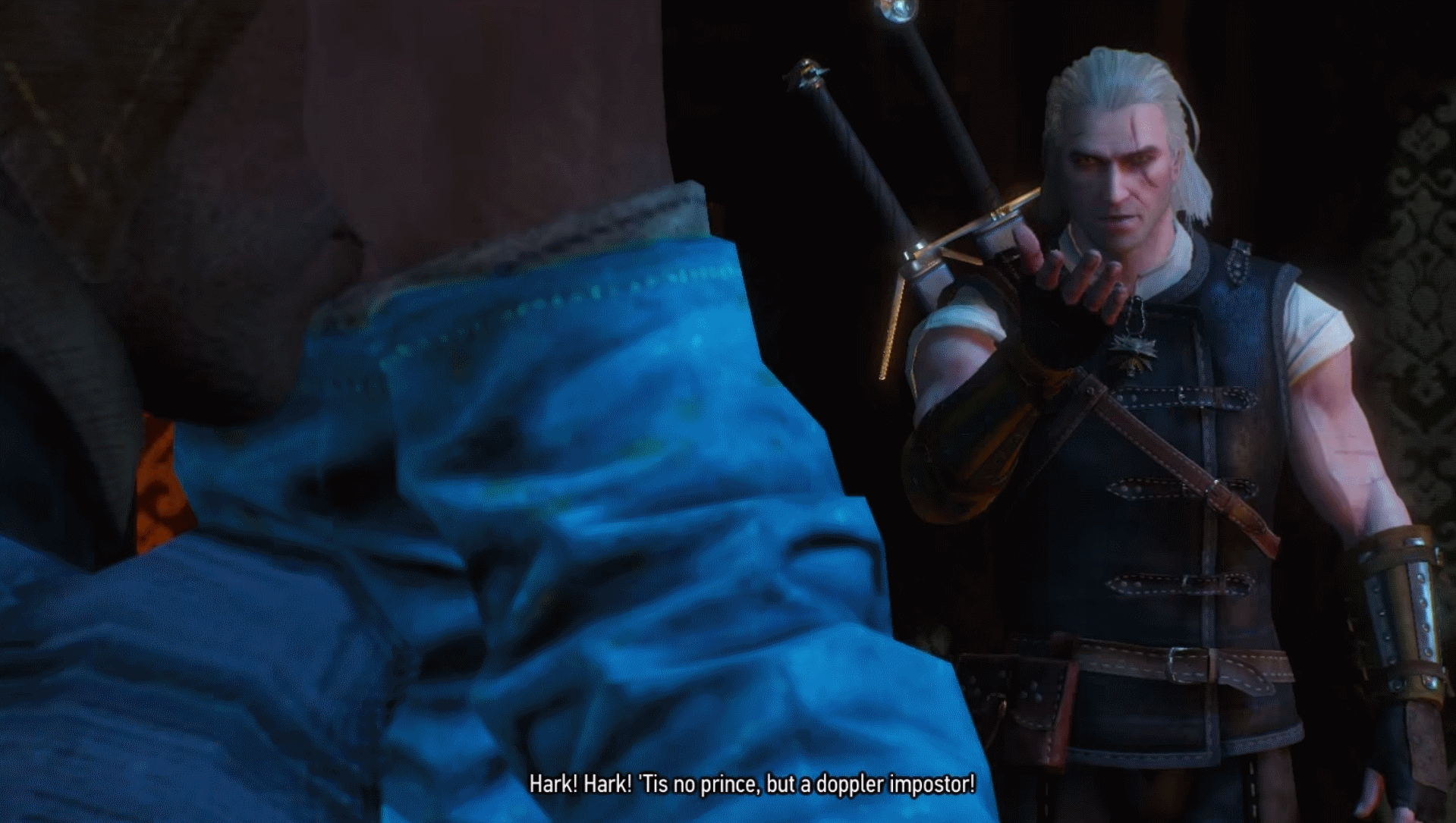
James: Things get fairly meta here. In order to draw out Dudu, a doppler, Geralt helps put on a play. Recruiting ushers (bouncers), musicians, and casting is up to you. Even the genre, comedy or drama, is player’s choice. But so is the leading role. *Gulp* You get a script you can study and review, but it’s a video game, thinking is for the birds, yeah?
But the charm lies within the unexpected table flip of asking the player to actually memorize their lines. There’s no math here, and no speech skill can save you. Success lies with the player’s ability to pay attention. It really shouldn’t have been such a surprise. This is a role-playing game after all, but still, I expected to skirt by on player convenience and flubbed all but one line. Luckily, my co-star was drunk and distracted the audience well enough, but now I must live with the shame of once having not paid enough attention in a video game every day of my life.
The Last Wish
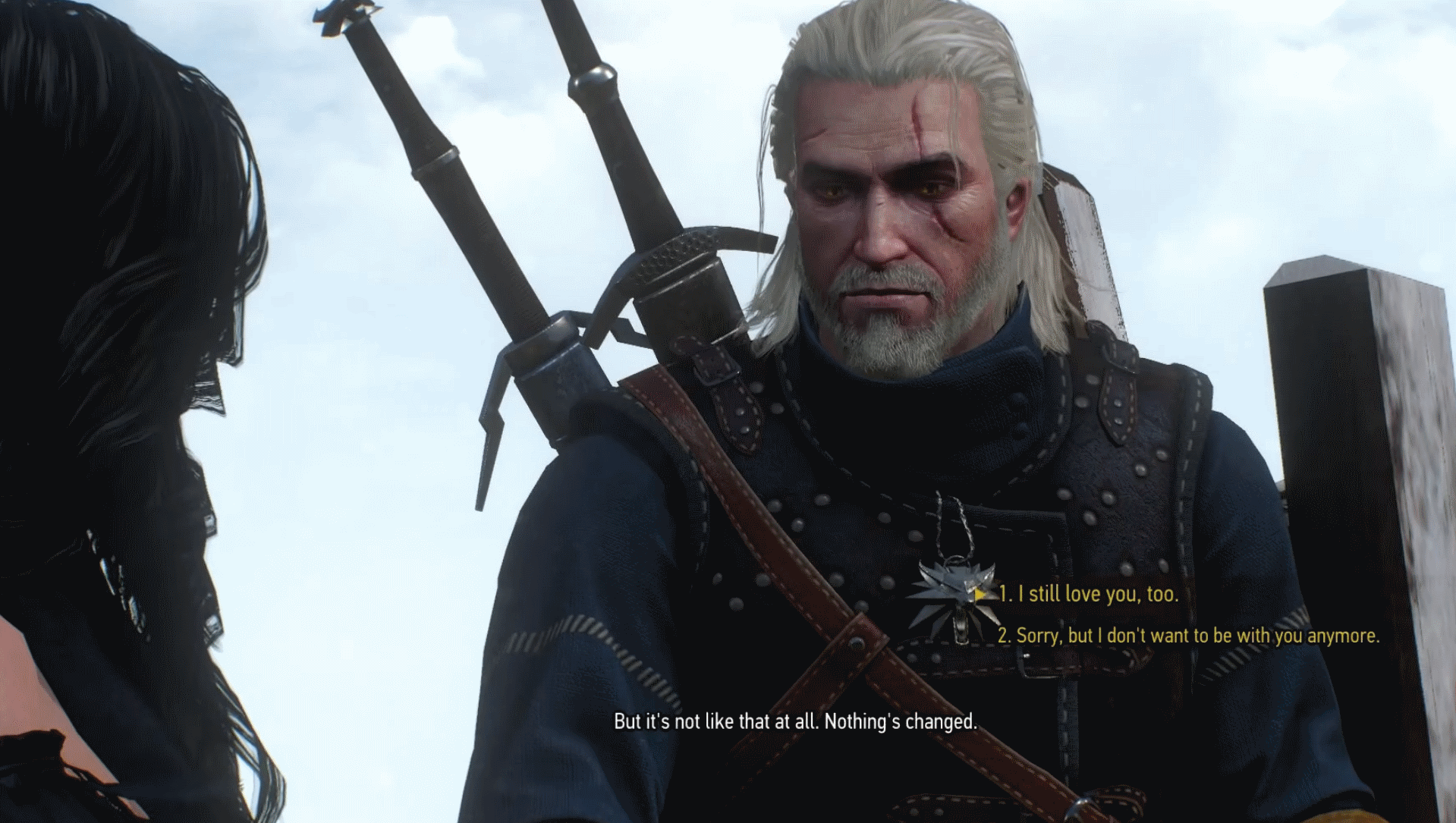
James: Due to previous events in the series, Geralt and Yenn are bound to one another and it’s in The Last Wish where things come to a head. Yenn seeks out a Djinn to break their magical magnetism to test their love for one another once and for all. They find one. In a ship on top of a mountain. Yeah.
I can’t imagine what it must feel like to tell Yenn you don’t love her after reading all the books and playing every game. I’ve only completed The Witcher 2 and 3, and even I was fairly tongue-tied, because The Last Wish is the closest approximation of breaking up with someone I’ve experienced in a game. I’m not sure what happens if you tell her you’re still head over heels, but before I busted the news that I was seeing Triss, Yenn told my Geralt her saucy feelings remained. Cue sucking air in through teeth. I agonized over being so blunt—Yenn is great! But I had to be true to her and myself. Triss and I were getting a cottage somewhere after this, settling down; we made plans to start a garden, maybe a book club.
Yenn didn’t take it well obviously, and it colored our relationship for the remainder (20 more hours) of the game. It was awkward, there was tension, but we moved on (and saved the world) despite ourselves. It was a nice break of pace from the typical RPG romances, often grossly storybook in their conveniences and happy endings. In order to find our true happy ending, we had to take a routine, realistic detour to sad town.
Fool's Gold
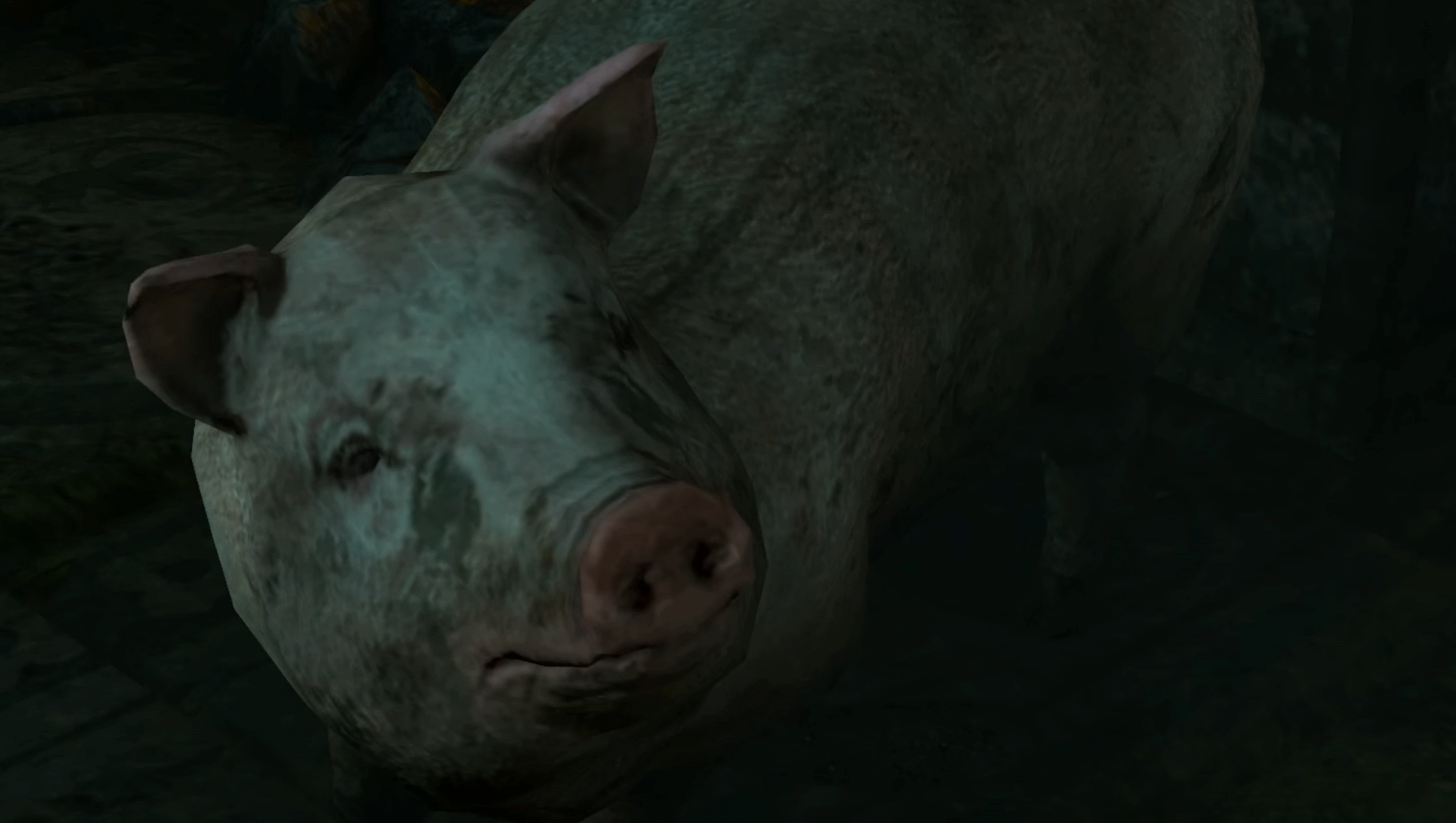
Wes: This is a DLC quest that has you encounter an idiot in a village, which is otherwise filled only with pigs. Turns out the pigs have been cursed, and Geralt has to escort the pigs to a cave, where they’d clearly disturbed a pig altar. The whole thing is a swine-filled farce. My favorite thing about the quest is that the hapless villager, Yontek, seems in turns a complete idiot, a savvy schemer, a complete idiot again, and then a tragic figure.
The point is, this is a quest about a bunch of kooky yokels who got turned into pigs. It’s funny.
James is stuck in an endless loop, playing the Dark Souls games on repeat until Elden Ring and Silksong set him free. He's a truffle pig for indie horror and weird FPS games too, seeking out games that actively hurt to play. Otherwise he's wandering Austin, identifying mushrooms and doodling grackles.
- Wes FenlonSenior Editor


